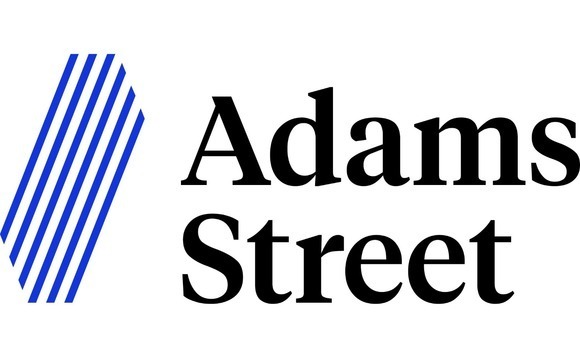
LP interview: Adams Street Partners

Adams Street Partners believes having a close-knit Asia team, which cuts across geographies, sectors, and stages, informs a big-picture view that enables it to look beyond near-term dislocations
Regulatory upheaval in China, from curbs on technology companies to a redrawing of commercial involvement in after-school tuition to tighter oversight on offshore IPOs, was responsible for a crisis of confidence among investors in 2021. Some LPs are still reluctant to make commitments to China-focused managers, with proposals failing to win investment committee approval.
Adams Street Partners, like its fund-of-fund peers that have a longstanding local presence in Asia, is not so downbeat. The firm remained calm amid the chaos last year and it is even looking for opportunities emerging from any kind of realignment.
"Some LPs may not be very comfortable with the uncertainty in China, which may affect their allocations in this region. The GPs in turn, are looking for LPs who understand the market and have a long-term view. This might be a good time for us," said Sunil Mishra, a Singapore-based partner at Adams Street.
He added that the firm has successfully negotiated volatility in Asia before, and not just in China. In the past decade, India and Indonesia both experienced severe currency issues, yet investment continued. The key is to distinguish short-term fluctuations from long-term trends.
Launched in Chicago in 1972 as a direct investment firm, Adams Street gradually expanded into fund investments. It now manages over USD 51 bn in assets for more than 490 institutional investors across primary fund commitments, secondaries, co-investments, direct growth equity investments, and private credit.
An Asia research and investment division was established in London in 2004, and since then Adams Street has backed approximately 150 funds and invested USD 5bn. A Singapore office opened in 2006. This was followed by bases in Beijing, Tokyo, and Seoul in 2010, 2014, and 2017.
Additional criteria
While the firm's enthusiasm for China remains undimmed, its criteria for manager selection in the country have become stricter. Doris Guo, a partner based in Beijing, emphasized a GP's ability to understand the policy environment and mitigate geopolitical and regulatory risks, given the events of the past 12 months.
"In the past, for example, an early-stage investor may have focused only on innovation and entrepreneurs, which is inadequate in today's market environment. Now, we are very demanding on GPs' ability to be sensitive to the macro environment, know what remains unchanged in the long run and what may change in the short term, and how to anticipate next steps," said Guo.
"We don't discount new GPs, but require any new manager to have strong capabilities and geopolitical expertise, in addition to proven investment capabilities. If some of our existing GPs are underperforming, we may have to weed them out."
As for the slowdown in IPOs by Chinese companies in the US, Adams Street is resigned to delayed distributions following several years of robust realisations. However, Guo observed that the current situation is no worse than five years ago when the US was the only viable listing destination for technology start-ups – with their dual-class share structures and lack of profit – and few made it.
Today, companies with these characteristics can go public on Hong Kong or in the mainland, while M&A options have proliferated with the rise of domestic giants able to absorb sizeable targets.
In time, China's capital markets are expected to surpass the US as a venue for innovative businesses. Guo noted that a similar transition has already happened in Japan to generally positive effect. Companies have commanded higher valuations when tracked by domestic investors that are familiar with the brands and business models, and specifically want exposure to high-growth start-ups.
"We don't think this will change significantly within months, but within the next 3-5 years we can expect that the development of China's capital markets to provide a strong exit mechanism for start-ups," Guo added.
"Over the last five years, regulators in the mainland and in Hong Kong have made rapid strides in promoting capital markets reforms. The pace of change has been very fast and China's embrace of innovation has allowed its capital market to attract more innovative companies."
Cross-market collaboration
Adams Street has 20 professionals in Asia, half of whom are responsible for investments. The firm operates under a cross-staffing structure with close coordination between offices. The Singapore team is involved in every China transaction, while US colleagues play a role as well by contributing to internal assessments of emerging industries and conducting reference calls.
"Collaboration within and across teams is very important. There are many lessons learned over the years that we share globally. But you need people on the ground to execute on this knowledge," said Mishra. "Our team in China is aware of the local culture and has extensive relationships with Chinese fund managers, which is very important to what we do."
Adams Street seeks to facilitate collaboration within the region by treating the Asia investment team as one. Partners are assigned specific geographic coverage; below that, there's a fluidity that carries people into different sectors and markets. The structure is underpinned by a conviction that investment professionals must have a big-picture view on the region.
For example, it is hoped that better decisions are made in China by virtue of drawing comparisons with relevant risk-reward dynamics in other jurisdictions. Moreover, an appreciation of how technology trends have played out in China informs business model assessments – and even interaction with management teams – in Southeast Asia.
The big-picture view helps Adams Street identify themes that cut across geographies, sectors, and stages. Commitments to specialist healthcare funds in China started 10 years ago when few LPs were doing the same. Getting in early led to strong returns.
"Our sector allocations are driven by top-down research. We catch significant trends in sectors and adjust our allocations accordingly. This might mean investing in a specialist fund or sticking with generalist funds," Guo said.
Entering the third year of COVID-19, technology represents the biggest opportunity in Asia. Pandemic-driven lockdowns and distancing measures accelerated transitions to remote consumption, leading to wider acceptance of online business models and a greater willingness to pay for quality services.
Against this backdrop, Adams Street resolved to increase its exposure to early-stage technology investments in India, albeit in a very measured way. The firm's Southeast Asia venture portfolio has performed well for similar reasons. Research on the area began seven years ago and another four years passed before a commitment materialised. Mishra noted that liquidity in the region has improved in the past couple of years, but he still wants to see more evidence before re-upping.
Japan, meanwhile, can point to a GP community that has matured over the last 10-15 years, progressing from the trial-and-error stage to knowing what works for them and how to execute. Adams Street favours the mid-market over large buyouts.
"They are proven GPs. First, they have sizable teams, consistent investment strategies and have learned the art of managing institutional capital. Second, the succession and carve out themes are playing out in Japan," said Mishra. He added that low interest rates and make it easier to execute leveraged buyouts.
Diversification drive
The importance of demonstrating consistent returns over time is underscored by the pace of change. In China, for example, hard-tech has come to the fore in recent years. GPs adept in consumer internet that cannot replicate this expertise in semiconductors may struggle. Evaluating whether talent is relevant to the opportunity set is a key part of due diligence, Guo said.
However, the instability of emerging Asia is not reflected in constant adjustments in allocations. Adams Street is methodical and gradual in its approach, adding managers here and there rather than going all-in on a market.
"We are cautious to not be overweight in one specific region because you know it takes 3-4 years to invest and another 4-5 years to exit. You can't precisely predict what's going to happen over the 7 to 10-year time frame," said Mishra. "Diversification is crucial to avoid risks and is one of the key attributes of how we operate."
In addition to building up an Asia portfolio comprising primary commitments to managers pursuing different strategies based on geography, stage, and sector, Adams Street has deployed USD 300m across nearly 30 co-investments in the region to date. It started in 2012 and the pace has ramped up in each of the last five years, despite COVID-19 adding complexities to due diligence.
The Asian investment team generally concentrates on primary fund commitments and relies on specialist input from US colleagues when executing co-investments and secondaries. Combining local and global resources is essential in sourcing and executing on opportunities - provided processes are not dragged out unnecessarily.
"For co-investments, GP relationships are critical, and responsiveness is key," said Mishra. "We are a global firm, but we can conduct a very efficient co-investment process. GPs frequently highlight the speed at which we move despite our size."
Latest News
Asian GPs slow implementation of ESG policies - survey
Asia-based private equity firms are assigning more dedicated resources to environment, social, and governance (ESG) programmes, but policy changes have slowed in the past 12 months, in part due to concerns raised internally and by LPs, according to a...
Singapore fintech start-up LXA gets $10m seed round
New Enterprise Associates (NEA) has led a USD 10m seed round for Singapore’s LXA, a financial technology start-up launched by a former Asia senior executive at The Blackstone Group.
India's InCred announces $60m round, claims unicorn status
Indian non-bank lender InCred Financial Services said it has received INR 5bn (USD 60m) at a valuation of at least USD 1bn from unnamed investors including “a global private equity fund.”
Insight leads $50m round for Australia's Roller
Insight Partners has led a USD 50m round for Australia’s Roller, a venue management software provider specializing in family fun parks.








